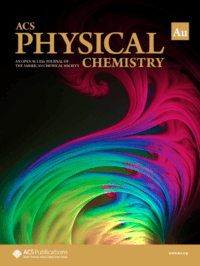Nominate yourself or your team to contribute to the next iteration of the “Visions for the Future of Physical Chemistry” Special Issue. Submit your nomination by October 31, 2025.

If our physical chemistry great-grandparents were to set foot in modern labs, they would see very recognizable questions being tackled with entirely unrecognizable techniques. In recent years, this evolution has accelerated as machine learning, autonomous labs, and single molecule control have changed the way we do science.
Looking forward, in 50 years’ time, students commencing their graduate work today will be approaching retirement. How will they have revolutionized our understanding of the physical and chemical world? Which research questions will have been resolved? Which questions remain elusive or challenging? What are the new questions we will be asking and how will they address the challenges facing humanity?
The last 50 years have also seen a transformation in the scientific research community, from a pursuit conducted in a limited number of countries to a global endeavor with researchers from all kinds of cultural and social backgrounds. What will the next 50 years bring in terms of diversity amongst researchers and the globalization of science?
We have witnessed an explosion in scientific publications over the last 50 years. What will the next 50 years bring in terms of publishing norms and the methods used to communicate our scientific results with the world?
Digital technologies have had a transformative effect on education, and we see this increasingly moving into the classroom. What will physical chemistry education look like in 50 years? Will students still spend hours in the lab, or will they be learning to program robots to run autonomous experiments?
Following the success of the inaugural iteration of our “Visions for the Future of Physical Chemistry” Special Issue in ACS Physical Chemistry Au, we want to ask a new cohort of physical chemists the same question in 2026: What is your vision for the future of physical chemistry? We hope to hear from anyone and everyone within the broad scope of physical chemistry all over the world.
You can share your vision in ACS Physical Chemistry Au by nominating yourself (or your team) to be considered for the next iteration of our “Visions for the Future of Physical Chemistry” Special Issue. The deadline for nominations is October 31, 2025.
If you are challenging scientific boundaries with your research, teaching or service and have a clear vision for the future of the field, then let us know. We want to hear, in your words, what the future might hold—for the science, the technology, and/or the culture of this field.
ACS Physical Chemistry Au is a fully open access journal, which means your work will be immediately freely available for anyone to read in perpetuity. We recognize that different authors have different levels of access to funding for Article Publication Charges (APCs). Therefore, evaluation of nominations will be entirely based on merit and not on financial resources. We offer a range of options to support authors with open access publishing, including through the ACS special country pricing policy, ACS read and publish agreements, and a limited number of APC waivers which can be offered at the discretion of the editor at the point of invitation.
The deadline to submit your nomination is October 31, 2025.
